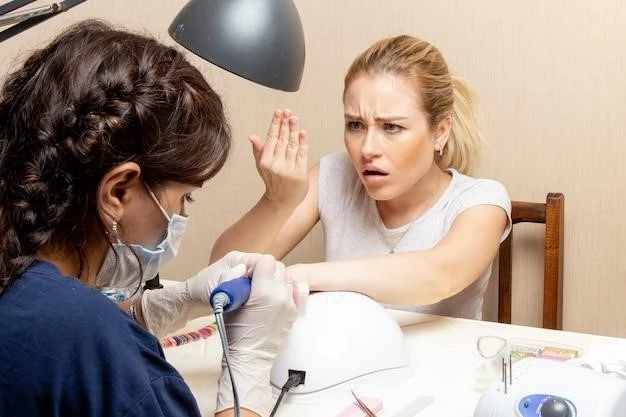Understanding Hypogonadism
When it comes to hypogonadism, understanding the role of hormones like testosterone and the impact on fertility and sexual development is crucial. This article will delve into the complexities of this condition to provide comprehensive insights and guidance.
Introduction to Hypogonadism
Hypogonadism is a condition that affects the reproductive system, specifically the gonads, which are responsible for producing sex hormones like testosterone. This imbalance can lead to various complications, including issues with fertility, libido, and sexual development.
Testosterone plays a vital role in the body, influencing everything from sperm production to muscle mass and bone density. When there is a deficiency in testosterone levels, it can result in a range of symptoms such as erectile dysfunction, decreased libido, and overall reduced quality of life.
Although hypogonadism can occur at any age, it is more commonly diagnosed in older men. It can be classified as primary, when the issue originates in the testes, or secondary, where the problem lies in the pituitary gland or hypothalamus.
Understanding the underlying causes, symptoms, and potential complications of hypogonadism is essential for proper diagnosis and management. By shedding light on this condition, individuals can seek appropriate medical advice and interventions to address their hormonal imbalances effectively.
The Endocrine System and Hypogonadism
The endocrine system plays a crucial role in regulating hormones, including testosterone, which is integral to reproductive health. Hypogonadism occurs when there is a hormone imbalance impacting the gonads’ function and testosterone production.
Within the endocrine system, the hypothalamus and pituitary gland are responsible for signaling the testes to produce testosterone. Any disruption in this communication pathway can lead to low testosterone levels, affecting fertility, libido, and overall sexual function.
It is important to recognize the intricate connection between the hypothalamus, pituitary gland, and gonads in hormone production. By understanding how these components interact, healthcare providers can better diagnose and treat hypogonadism effectively.
Individuals experiencing symptoms of low testosterone should consult with a healthcare professional to undergo appropriate testing and evaluation. By addressing hormonal imbalances early on, it is possible to manage the effects of hypogonadism and improve overall quality of life.
Types and Causes of Hypogonadism
Hypogonadism can be classified into two main types⁚ primary and secondary. Primary hypogonadism occurs when there is a problem with the testes, leading to reduced testosterone production. Secondary hypogonadism, on the other hand, involves issues with the hypothalamus or pituitary gland.
There are various causes of hypogonadism, including genetic disorders, autoimmune diseases, obesity, and certain medications. In primary hypogonadism, conditions like Klinefelter syndrome or undescended testicles can contribute to hormone deficiencies.
Secondary hypogonadism may result from tumors, traumatic brain injuries, or chronic illnesses that impact the hypothalamus or pituitary gland. Understanding the underlying cause of hypogonadism is crucial for developing an appropriate treatment plan and addressing any potential complications.
If you suspect you may have hypogonadism, consult with a healthcare provider for a thorough evaluation. By identifying the type and cause of hypogonadism, you can work towards managing the condition effectively and improving your overall health and well-being.
Symptoms of Hypogonadism
Recognizing the symptoms of hypogonadism is crucial for early detection and management of this condition. Common signs may include erectile dysfunction, decreased libido, infertility, fatigue, and decreased muscle mass. In adolescents, delayed puberty and incomplete sexual development can be indicators of hypogonadism.
Other symptoms may involve changes in mood, reduced bone density, and diminished cognitive function. It is important to pay attention to any noticeable changes in your health and discuss them with a healthcare provider for further evaluation.

Addressing the symptoms of hypogonadism promptly can lead to more effective treatment and better outcomes. By being proactive about your health and seeking medical advice when needed, you can take control of your well-being and address hormonal imbalances to improve your quality of life.
If you are experiencing any of these symptoms, do not hesitate to reach out to a healthcare professional for proper diagnosis and personalized treatment options. Identifying and addressing hypogonadism early on can help you maintain optimal hormone levels and overall health.
Diagnosis and Treatment of Hypogonadism
Diagnosing hypogonadism typically involves a series of tests to measure hormone levels, such as testosterone, LH, and FSH. Your healthcare provider may also conduct physical exams and review your medical history to determine the underlying cause of hormone deficiencies.
Once diagnosed, treatment for hypogonadism may include hormone replacement therapy to restore testosterone levels to normal. Lifestyle modifications, such as regular exercise, healthy diet, and weight management, can also help improve symptoms associated with low testosterone.
It is essential to work closely with your healthcare team to establish a personalized treatment plan tailored to your needs. Regular monitoring of hormone levels and symptoms is crucial to assess the effectiveness of treatment and make any necessary adjustments.
Discuss the potential benefits and risks of treatment options with your healthcare provider to make informed decisions about managing hypogonadism. With proper diagnosis and comprehensive treatment, individuals can experience improvements in fertility, libido, and overall quality of life.
Complications and Risks Associated with Hypogonadism
Untreated hypogonadism can lead to various complications and risks that affect both physical and emotional well-being. Long-term consequences may include infertility, decreased bone density, muscle loss, and an increased risk of cardiovascular issues.
Furthermore, low testosterone levels can impact mental health, leading to mood changes, irritability, and decreased cognitive function. Addressing hypogonadism promptly is essential to mitigate these risks and prevent further complications.
Individuals with hypogonadism should be proactive about their health and work closely with healthcare providers to manage the condition effectively. By monitoring hormone levels, addressing symptoms, and making necessary lifestyle changes, it is possible to reduce the risks associated with hypogonadism.
Seeking early intervention and adhering to treatment recommendations can help minimize the long-term complications of hypogonadism. By taking a proactive approach to your health, you can optimize hormone levels and overall well-being for a healthier future.
Lifestyle Tips and Recommendations for Individuals with Hypogonadism
Managing hypogonadism goes beyond medical treatment and involves adopting healthy lifestyle habits to support hormone balance and overall well-being. Incorporating regular exercise, especially strength training, can help improve testosterone levels and promote muscle mass.
A balanced diet rich in nutrients like zinc, vitamin D, and omega-3 fatty acids can also benefit individuals with hypogonadism. Maintaining a healthy weight through proper nutrition and portion control is essential for managing hormone imbalances and reducing the risk of complications.
Adequate sleep plays a crucial role in hormone regulation, so prioritize getting 7-9 hours of quality sleep each night. Stress management techniques٫ such as mindfulness meditation or yoga٫ can help reduce cortisol levels and support hormonal balance.
Avoiding tobacco, excessive alcohol consumption, and illicit drug use is important for overall health and hormone regulation. Consult with a healthcare provider before starting any new supplements or alternative therapies to ensure they are safe and effective for managing hypogonadism.
